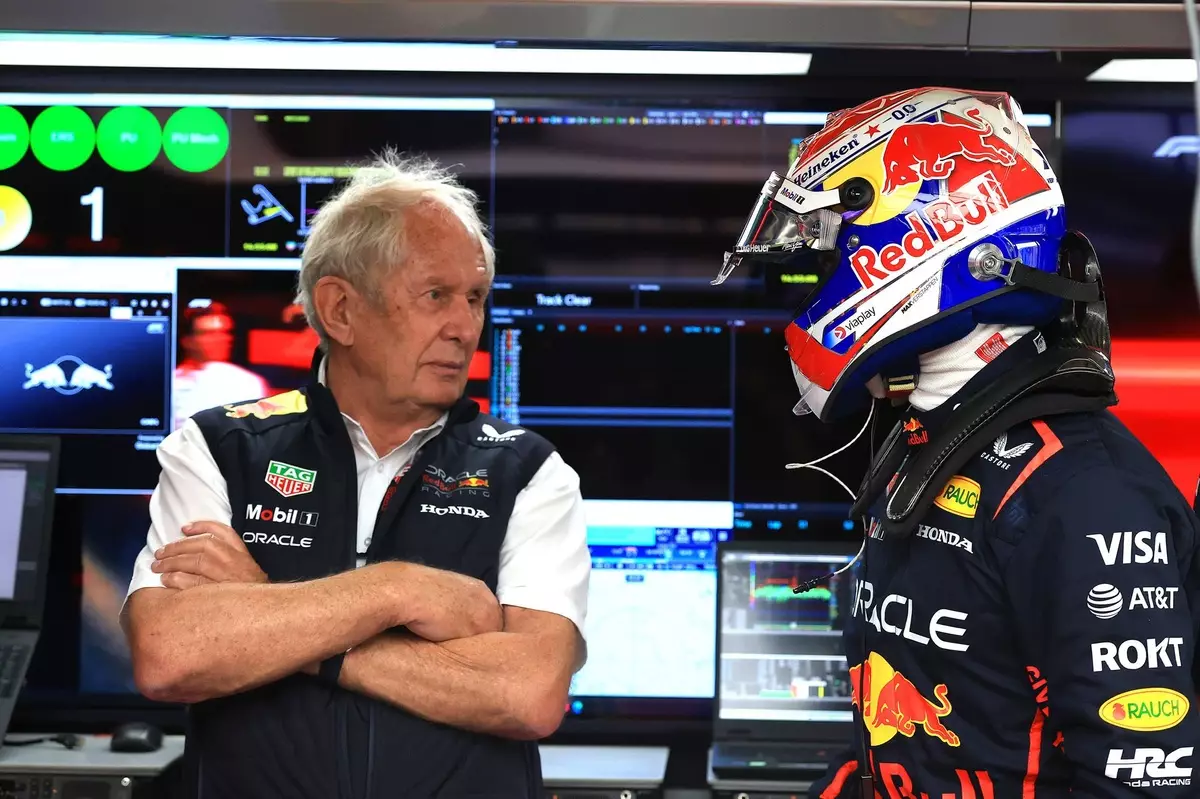The Spanish Grand Prix was one for the history books, not solely for the fierce competition among drivers but for the immense drama that unfolded in the closing laps. Red Bull’s Helmut Marko, a vital cog in the team’s machinery, could hardly hide his bewilderment over Max Verstappen’s behavior during those crucial moments. The culmination of tension, aggressive racing, and strategic blunders led to a chaotic scene that left both fans and pundits in shock. Verstappen’s miscalculations on the circuit not only affected his race outcome but potentially jeopardized his season in the long run.
The situation escalated during the race’s final laps after a safety car restart, where Verstappen found himself grappling with fierce rivals and what seemed to be an overwhelming sense of frustration. What is critical here is not just Marko’s analysis but the psychological undertones that dictate driver behavior in high-stakes environments. It was not merely a lapse in judgment but rather a reaction that hinted at the mounting pressures that drivers like Verstappen face. The safety car period acted as a reset, but for Verstappen, it seemed to release a torrent of pent-up emotions which quickly spiraled out of control.
The Ripple Effects of Pressure
During the pivotal moments of the race, the Dutch driver lost critical ground to his competitors, including Charles Leclerc from Ferrari. This was exacerbated by verbal instructions from his team to yield a position he was unwilling to give back. Marko’s account of the incident indicates a lack of clarity or coherence in Verstappen’s decision-making. The moment he felt cornered triggered a series of misguided actions, culminating in a clash with George Russell. Such clashes raise questions about mental fortitude in racing—how drivers manage the balancing act of competitive spirit, regulatory compliance, and emotional control.
In Formula 1, every action carries profound ramifications. Marko’s comments pointed toward a mental warfare being waged within the confines of the cockpit. The driver’s frustrations were palpable; a combination of perceived injustices from fellow competitors and the challenge of abiding by the rules under extreme pressure arguably clouded his judgment. In a sport where a split-second decision can culminate in a loss of points or championship standing, Verstappen’s actions could be seen as a reckless gamble, one that he would later publicly regret.
Decisions Under Duress: The Price of Ego
Verstappen’s on-track altercation with Russell resulted in a ten-second penalty—a heavy price that immediately altered the trajectory of his race and possibly his season. The stewards’ intervention and the subsequent penalties instigated a heightened scrutiny of Verstappen’s decision-making process. Marko emphasized that Verstappen is acutely aware of the regulations, yet in these fractions of chaos, he deviated from his typically strategic mindset. This incident not only magnified the challenges drivers face under pressure but also culminated in a heavy penalty that could affect Verstappen’s eligibility in upcoming races.
What makes this situation particularly poignant is how Verstappen’s emotional response can be interpreted as both a sign of his fierce competitiveness and a potential flaw in his approach. Marko’s observation that “everyone goes their own way” highlights an alarming potential for isolation within the racing sphere when handling defeat. The mental resilience required to excel in Formula 1 is often underscored, yet this episode serves as a sobering reminder of the thin line between aggression and aggression gone awry.
A Glimpse into Extremities of Racing
As Verstappen confronted the consequences of his actions, he took to social media to express regret over his conduct. His admission was significant, albeit not something commonly seen, indicating a moment of introspection typically entrenched in the ego-driven world of motorsports. The rivalry between him and Russell has been notably intense, and the incidents of the Spanish Grand Prix only served to stoke those fires further. It raises a fundamental question: at what point does a driver’s aggressive demeanor become detrimental to both personal performance and the team’s success?
In this high-octane environment, it is essential to ponder how best a driver can harmonize their instinctual racing instinct with the demands of professionalism and team success. Verstappen’s struggles during the Spanish Grand Prix serve as an illustrative case study for the relationship between pressure and decision-making in elite sports, raising questions about whether we are witnessing the birth of a more mature racer or the rise of a temperament that may hinder future accomplishments.

